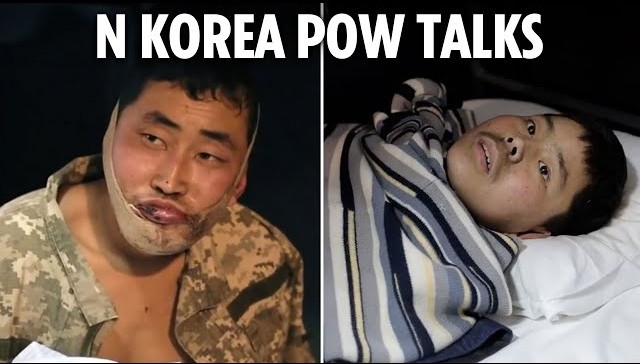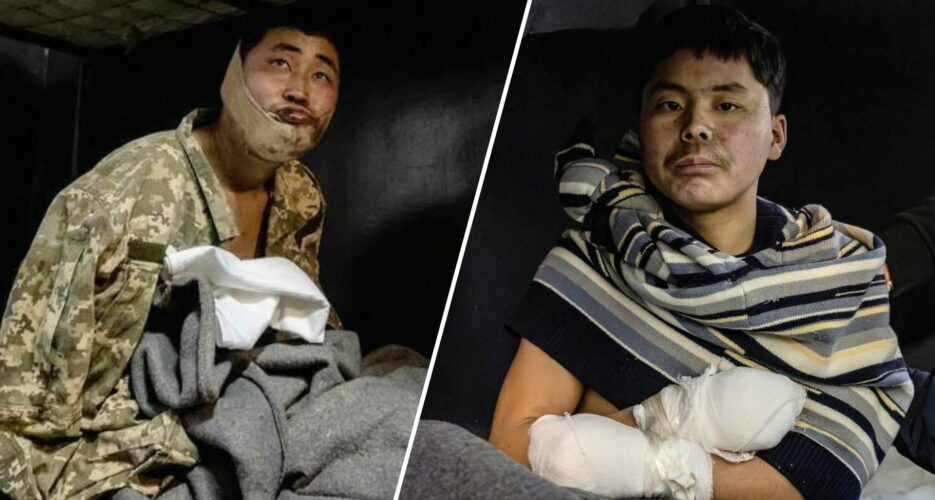North Korea deployed around 12,000 troops in
Russia, at least 300 killed and 2,700 wounded
two soldiers were taken captive by Ukraine
Nam Seunghyun (Korea National Diplomatic Academy)

Fresh reports confirm that North Korean soldiers have been captured as Prisoners of War (POWs) in Ukraine, providing what President Volodymyr Zelensky calls “irrefutable evidence” of North Korea’s involvement in Russia’s war against Ukraine. According to South Korea’s National Intelligence Service (NIS), North Korea deployed around 12,000 troops in Russia’s Kursk Oblast, with at least 300 killed and 2,700 wounded. Among them, two soldiers were taken captive by Ukraine.
President Zelensky has proposed a prisoner exchange, offering to swap the captured North Korean POWs for Ukrainian soldiers held in Russia. While any exchange would likely result in their repatriation to North Korea, Zelensky left open the option for the soldiers to remain elsewhere if they choose to “bring peace closer by spreading the truth about the war in Korean.” One of the captured soldiers expressed his desire to return to North Korea, while the other indicated he would prefer to stay in Ukraine but would return if required.
Human Rights Concerns Over POW Repatriation
Under the Third Geneva Convention, POWs should be returned to their homeland after conflict. However, human rights organizations fear that repatriating North Korean soldiers could put them at grave risk. North Korean defectors often face arbitrary detention, torture, or execution upon return. Reports indicate that North Korean authorities ordered these soldiers to commit suicide before capture, raising concerns that they may be treated as traitors.
Ukraine is currently working with the United Nations (UN), International Committee of the Red Cross (ICRC), and other organizations to ensure the humane treatment of POWs, as mandated by international law. The principle of non-refoulement prohibits returning individuals to countries where they face persecution. The UN has previously urged nations not to forcibly repatriate North Korean defectors due to the severe human rights violations they endure.

South Korea’s Stance and Legal Challenges
The South Korean government has not yet taken an official position on the fate of the POWs. A spokesperson stated that their return requires “a review of international law and consultation with other relevant countries.” Under South Korea’s constitution, North Korean citizens are considered South Korean nationals, meaning the POWs could legally seek refuge in South Korea—a principle that has historically allowed North Korean defectors to settle there.
However, North Korea and Russia have not officially acknowledged the deployment of North Korean troops, creating a diplomatic challenge. There is also a possibility that Russia could claim the POWs as their own soldiers to avoid international scrutiny.
Historical Precedent and the Right to Voluntary Repatriation
The concept of voluntary repatriation dates back to the Korean War, when many communist POWs refused to return to North Korea or China due to fears of punishment. U.S. President Harry Truman at the time advocated for voluntary repatriation, stating that forced returns violate moral and humanitarian principles. These same principles should be applied to the North Korean POWs in Ukraine today, ensuring that their free will is respected and that they are not forcibly returned to a regime where they face persecution.
Conclusion
As the war in Ukraine continues, the fate of the captured North Korean soldiers remains uncertain. With legal, diplomatic, and human rights concerns at play, international organizations and governments must carefully navigate the situation to ensure the safety and dignity of the POWs involved. The global community now watches closely to see how Ukraine, South Korea, and international bodies handle this sensitive issue.






















